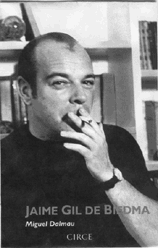Don't know much about history
Most of the modern love commonplaces, topoi and ways of thinking were not born in the courtly love, in Provençal poetry, in Petrarch or in Romantic literature, as it is often asserted, but go back to the Greek and Latin poetry. This has been explained very well by Bruce S. Thornton, in his magnificent book Eros. The myth of ancient Greek sexuality, Boulder, Colorado: Westview Press, 1997. These topoi developed specially in two ancient literary genres: the Greek epigram from the Hellenistic period and the Latin love elegy.
Let us bring forward today just one example. The songwriter and performer Sam Cooke (1931-1964) issued in 1960 a famous song, titled "Wonderful world".

The first part of the lyrics reads:
Don't know much about history
Don't know much about biology
Don't know much about the science book
Don't know much about the French I took
But I do know that I love you
And I know that if you love me too
What a wonderful world this would be.
Now, in fact the singer is using here a rhetorical scheme that we call recusatio (literally: "refusal", from the Latin verb recusare, "to reject"). The structure of the recusatio is twofold: in a first part, the lyric subject rejects (or declares to ignore) a whole of subject-matters or interests (here: history, biology, science and French); in the second part, the subject affirms that he is only interested in (or knowledgeable about) the love he feels for his sweetheart.
Propertius, one of the Roman elegists, exploited the same structure in his elegy 2.1. Here are the lines 1-3 and 41-46 of this elegy:
Quaeritis unde mihi totiens scribantur amores,
unde meus veniat mollis in ora liber.
non haec Calliope, non haec mihi cantat Apollo:
[...]
nec mea conveniunt duro praecordia versu
Caesaris in Phrygios condere nomen avos.
navita de ventis, de tauris narrat arator,
enumerat miles vulnera, pastor oves;
nos contra angusto versamus proelia lecto:
qua pote quisque, in ea conterat arte diem.
You ask how it is that I compose love poems so often,
how it is that my book sounds so soft upon the lips.
It is not Calliope, not Apollo that puts these songs in my mind:
[...]
nor are my powers fitted to enshrine in martial strains
the name of Caesar among his Phrygian ancestors.
The sailors tells of winds, the ploughman of oxen;
the soldier counts his wounds, the shepherd his sheep;
I for my part wage wars within the narrow confines of a bed:
let everyone spend his life in the trade he practises best.
(Translation: G. P. Goold)
Propertius rejects martial themes as a source of inspiration for his poetry. And he declares that he can only write about his love. He is interested only in love, and in nothing else.
I do not mean here that Sam Cooke imitated Propertius (or, for that matter, any other Greek or Roman poet). But it is certain that he resorted to a traditional commonplace that had arisen in the Classical poetry.
Labels: tópicos literarios







